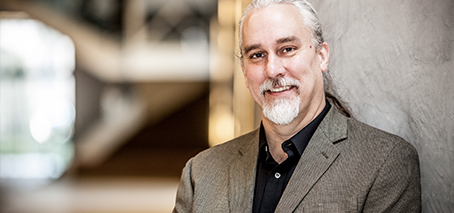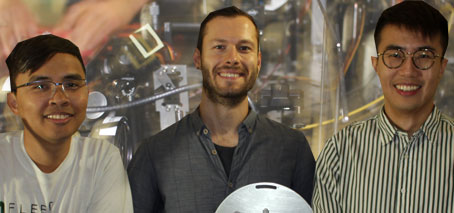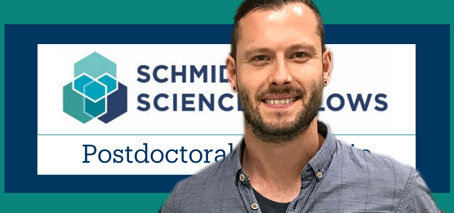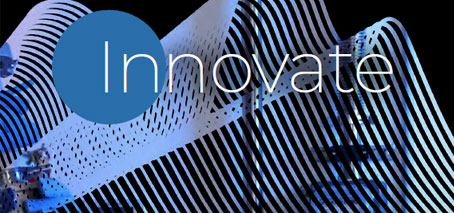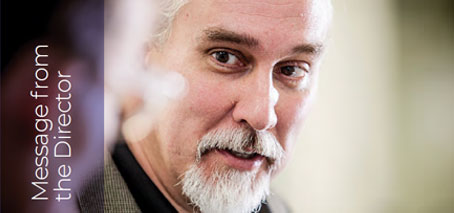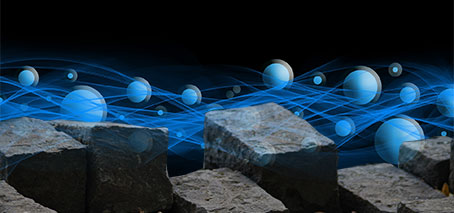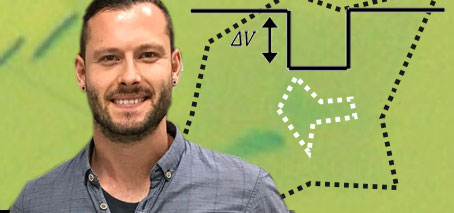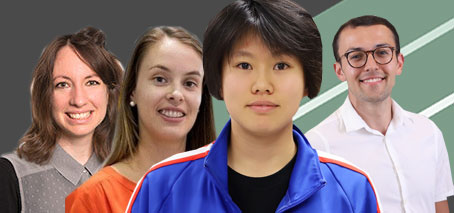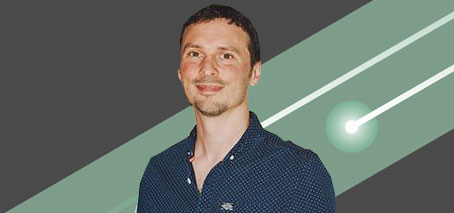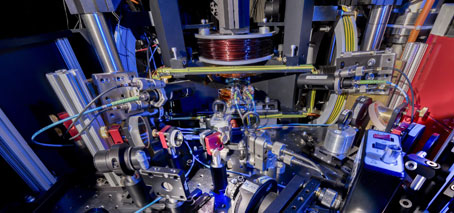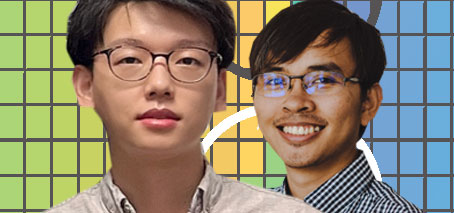About the presenter Sangeet Kumar is a PhD student working with FLEET Associate Investigators Jesper Levinsen and Dmitry Efimkin at Monash University. Sangeet works on Novel exciton-polariton systems for his PhD project to investigate the dynamics of excitons-polaritons in two-dimensional semiconductors, with a particular focus on interactions mediated by strong coupling to light. This work fits in FLEET Research Theme …
Effective dissipative light-matter coupling in nonideal cavities
About the presenter Dr Olivier Bleu is a Postdoctoral Research Fellow working with Prof Meera Parish and Dr Jesper Levinsen at Monash University within FLEET’s Research themes 2: Exciton superfluids. His research interests include Berry curvature and related effects, topological photonics, Bose-Einstein condensates and exciton-polariton physics.
Wave packet dynamics and emergent topological defect in non-Hermitian exciton polaritons
About the presenter Yow-Ming (Robin) Hu is an Honours student working with Chief Investigator Elena Ostrovskaya. Her project aims to characterise the topology of an exciton-polariton system and to show how to calculate and measure its quantum geometric tensor, including complex Berry curvature. This works towards a key objective of FLEET Research Theme 2 Exciton Superfluids to observe, theoretically and …
TBA
About the presenter Dr Paul Dyke is currently a research fellow at Swinburne University of Technology. Within FLEET, Dr Dyke is working in Research theme 3, he is experimentally studying Floquet topological superfluidity, non-equilibrium enhancements to superfluids and 2D topological insulators in synthetic dimensions.
Fermi polaron approach to doped atomically thin semiconductors
About the presenter AI A/Prof Jesper Levinsen is currently an ARC Future Fellow at Monash University. As a theoretical physicist, within FLEET he works on topological Floquet superfluids and on the dynamical manipulation of superfluids with impurities.
Spatially indirect exciton condensates
About the presenter Prof Francois Peeters is a member of FLEET’s International Scientific Advisory Committee. He leads the Condensed Matter Theory Group at the University of Antwerp and also distinguished Professor at Yunnan University. Prof Peeters has made seminal contributions in areas of meso- and nano-physics of semiconductors, two dimensional materials and superconductors. Currently, his interest is in two-dimensional atomic …
FLEET Director elected Fellow of the Australian Academy of Science
Leading materials physicist and FLEET Director Prof Michael Fuhrer has been recognised for his contributions to science, elected a Fellow of the Australian Academy of Science. Professor Fuhrer is one of 20 researchers elected as Fellow of the Australian Academy of Science, announced today. Prof Michael Fuhrer is an international leader in study of the electronic properties of 2D and …
FLEET 2023 Workshop Program
The scientific program is below, the abstract and presenter bio can be viewed by clicking on the title. The PDF of the workshop schedule can be downloaded here. Monday 3 July Tuesday 4 July Poster Session Tuesday 4 July Wednesday 5 July Poster Session Wednesday 5 July Vote for your favourite poster Three $200 cash prizes for the three best posters – …
Annual Workshop 2023
Monday 3 July Tuesday 4 July Wednesday 5 July Thursday 6 July Friday 7 July
US-Aust colloquium. Exploring out of equilibrium physics in an open system with polariton lattices
Jacqueline Bloch, Center for Nanoscience and Nanotechnology C2N / Université Paris Saclay/ CNRS, Palaiseau, France Photonic resonators, coupled within a lattice, have appeared in the recent years as a powerful synthetic platform to imprint on light some of the fascinating physical properties that can emerge in condensed matter, or even to go beyond what exists in nature. For instance, light …
US-Australia condensed-matter/cold atoms colloquia series
Hybrid particles surprise with negative mass
First published Australian National University A surprise observation of negative mass in exciton-polaritons has added yet another dimension of weirdness to these strange light-matter hybrid particles. Dr Matthias Wurdack, Dr Tinghe Yun and Dr Eliezer Estrecho from the Department of Quantum Sciences and Technology (QST) were experimenting with exciton polaritons when they realised that under certain conditions the dispersion became …
Congratulations Matthias Wurdack: Schmidt Science Fellow
Congratulations to Dr Matthias Wurdack (FLEET/ANU), who has received a Schmidt Science Fellowship to develop artificial retinas. Matthias started his’ PhD at ANU in 2018, working with FLEET CI Elena Ostrovskaya to create, investigate and engineer the properties of hybrid light-matter particles in atomically-thin semiconductors with the aim to realise room temperature superfluidity based on this material platform, and understand and elevate …
FLEET is pursuing the following research themes to develop systems in which electrical current can flow with near-zero resistance: Topological materials Exciton superfluids Light-transformed materials The above approaches are enabled by the following technologies: Atomically-thin materials Nanodevice fabrication FLEET’s approach is multidisciplinary, combining efforts across condensed-matter, cold-atom physics, material science and nanofabrication. FLEET will: Develop and progress new concepts for …
FLEET 2022: Message from the Director
2022 marks the fifth full year of FLEET operations. At this stage in the Centre’s life, FLEET is focused on demonstrating key research milestones with the highest impact, pathways to translate the most promising research results, and understanding and quantifying the impact that FLEET has made – not only in research, but in training, outreach and diversity. These activities will …
Engineering a novel supersolid state using layered 2D materials
Can a solid be a superfluid? Bilayer excitons form a quantum supersolid A collaboration of Australian and European physicists predict that layered electronic 2D semiconductors can host a curious quantum phase of matter called the supersolid. The supersolid is a very counterintuitive phase indeed. It is made up of particles that simultaneously form a rigid crystal and yet at the …
FLEET Seminar: Yuerui Larry Lu – Enhanced Interactions of Interlayer Excitons in Free-standing Hetero-bilayers
Prof. Yuerui (Larry) Lu, School of Engineering, Australian National University (ANU) Missed the seminar? Catch up on FLEET’s YouTube. Abstract Strong, long-range dipole-dipole interactions between interlayer excitons (IXs) can lead to novel multi-particle correlation regimes that drive the system into distinct quantum and classical phases including dipolar liquids, crystals, and superfluids. Both repulsive and attractive dipole-dipole interactions have been theoretically …
Submission to the National Quantum Strategy: proposed framework
FLEET has made the following submission towards the proposed framework of Australia’s National Quantum Strategy. See Consultation Paper. The ARC Centre of Excellence in Future Low-Energy Electronics Technologies (FLEET; fleet.org.au) is a collaboration between Monash University, Australian National University, University of New South Wales, University of Queensland, RMIT, Swinburne University of Technology, and University of Wollongong, comprising around 200 leading …
Trapping polaritons in an engineered quantum box
High exciton-polariton density in an engineered quantum box Possible pathway to future, ultra energy-efficient technologies Australian researchers have engineered a quantum box for polaritons in a two-dimensional material, achieving large polariton densities and a partially ‘coherent’ quantum state. New insights coming from the novel technique could allow researchers to access striking ‘collective’ quantum phenomena in this material family, and enable …
Four new Research Fellows: increasing our team’s strengths with diversity
FLEET welcomes four new research fellows, working in disparate roles across the Centre and all contributing to the improved diversity that makes the Centre greater than the sum of its parts: Dr Emma Laird (UQ) Dr Yonatan Ashlea Alava (UNSW) Dr Mengting Zhao (Monash) Dr Grace Causer (Monash) The four new fellows were successful candidates among 35 applicants for the …
Congratulations A/Prof Jesper Levinsen
Congratulations to FLEET’s Jesper Levinsen, whose work has been recognised by the Monash University Faculty of Science, as he is promoted to Associate Professor. FLEET Associate Investigator Jesper Levinsen is a theoretical physicist researching strongly-interacting quantum systems at the interface between condensed matter physics and the physics of ultracold atomic gases in the Monash School of Physics and Astronomy. “I …
FLEET seminar – Non-Hermitian topology in exciton polariton systems
Dr Eli Estrecho, FLEET research Fellow, Polariton BEC Group, Australian National University Missed the talk? Catch-up on YouTube Losses are known to be detrimental to devices but judiciously controlling them can lead to counterintuitive gains. For example, by increasing loss, lossy materials can become transparent or a lossy laser can turn on again. In this seminar, I will discuss our …
Postcard from Singapore: Life post-FLEET with Centre alumni Elizabeth Marcellina
Keep discovering and rediscovering yourself Be open to new research and life directions Hi, I am Elizabeth Marcellina, and I was previously a FLEET PhD student and then Research Fellow at UNSW with Prof Alex Hamilton and A/Prof Dimitrie Culcer. My general research directions within FLEET were to harness spin-orbit interactions in semiconductors for spintronics and spin-orbit qubits. To be …
International Women’s Day bias breaker: Meera Parish
Jesper Levinsen outstanding referee
Congratulations to FLEET’s Jesper Levinsen, whose exceptional work as referee of peer-reviewed papers has been recognised by the Outstanding Referee Awards, one of only three in Australia in 2022, by the American Physical Society (APS). The APS recognises around 150 outstanding referees each year who have demonstrated exceptional work in the assessment of manuscripts submitted to the Physical Review journals. …
FLEET Schools: The Exciton-Polariton
Where are they now? FLEET alum Carlos Kuhn
Solving complex problems, data analysis to aid decision-making, and outreach: from cold-atoms research to defence industry consultancy Hi former colleagues from FLEET! I’m Carlos Kuhn. At FLEET, I was a post-doctoral research fellow under the supervision of Prof. Chris Vale at the Centre for Quantum and Optical Science at Swinburne University of Technology, where we investigated non-equilibrium and topological phenomena …
Probing quantum gases with spectroscopy (Nature review)
December’s edition of Nature Physics is dedicated to ultracold quantum technologies, including a review of spectroscopic probes of quantum gases by FLEET’s Chris Vale (Swinburne), with MIT’s Martin Zwierlein. Ultracold gases are a laboratory for precision, many-body physics – delivering a wealth of insights into collective quantum phenomena, with direct implications for nuclear and condensed-matter physics. Spectroscopic techniques can probe …
FLEET 2021 Workshop Program
The FLEET2021 workshop takes place in MeetAnyway virtual platform. If you have not received an invitation to join the meeting space, please email FLEETcentre@monash.edu for assistance. The full workshop program is below, also available in the FLEET Google calendar for your convenience.
Losing isn’t always bad: gaining topology from loss
Generating topology from loss in hybrid light-matter particles Observation of new non-Hermitian topological invariant in exciton-polariton system Losing particles can lead to positive, robust effects. An international collaboration has demonstrated a novel topology arising from losses in hybrid light-matter particles, introducing a new avenue to induce the highly-prized effects inherent to conventional topological materials, which can potentially revolutionise electronics. Led …

